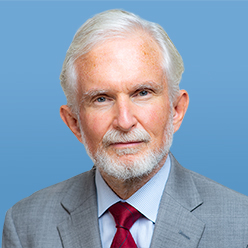The Obama administration has offered to “reset” relations with Russia. But what is really needed is a change of operating system.
A reset seeks to restore a previous relationship, which for former officials of the Clinton administration now back in office means the Yeltsin years. This will fail because Moscow views that period as emblematic of Russian weakness and exploitation by the West, and especially by the United States.
Relations with Moscow deteriorated under both Bill Clinton and George W. Bush. The U.S. neo-liberal project of the ’90s not only failed but deeply alienated Russians. The bilateral nadir was the Kosovo war, a worse episode than last year’s Georgia conflict. A new opportunity after 9/11 was frankly squandered.
Washington regarded Russia as a loser and treated it as such. It forgot that Russia would not be weak forever, and would remember.
Two structural problems limit the relationship and its improvement. First, it is very narrow, with few automatic stabilizers. Unlike Russian-European or U.S.-Chinese relations, the scant economic and human ties between the U.S. and Russia provide inadequate ballast when problems arise. Relations are highly vulnerable to outside events and defined more by disputes than cooperation. When malice is added to the mix, the result is dangerous.
Second, for Moscow the relationship is largely zero sum, in that Russian diplomacy succeeds where America’s fails, as in Iran and Venezuela. This is the consequence both of the huge asymmetry in real power and influence of the two countries and an asymmetry of geography in that almost anything the United States does in Eurasia affects Russia’s interests, often adversely. Thus Moscow worries that a successful Obama presidency will come at their expense with other countries. Russian commentators especially fear this may be the case with Iran, seeing the potential for a shift comparable to Mao’s China or Sadat’s Egypt.
The current Russian leadership bears a disproportionate share of the blame for our poisonous relations. But Washington needs to adopt new rules of engagement to not repeat mistakes of the previous 16 years:
One, minimize deliberate challenges to Russian interests and know that none will come free. If we push NATO, they will push back. When we sponsored an independent Kosovo, Moscow declared it would do the same in Abkhazia and South Ossetia. Reciprocity is real.
Two, accept the failure of the neo-liberal agenda in Russia. American concepts of what Russia should become are simply not welcome among Russians. It’s their country, not ours.
Three, don’t expect much in areas where Russia has little real influence, as in North Korea, the Middle East and even Iran.
Four, establish a pattern of substantive cooperation on Afghanistan and arms control, each containing major challenges.
Moscow is closer to Washington on the Afghan problem than are most European governments. Russia has interests and sees dangers in south Central Asia. It is willing to cooperate with the U.S., but not gratis. Large-scale northern access to Afghanistan as an alternative to Pakistani routes will require acceptance of the objective reality that Central Asia is Russia’s hinterland (and China’s) and not ours.
The U.S. is again committed to treaty-based strategic nuclear arms control, to preserve the legacy of Reagan and Gorbachev. The nuclear issues alone are difficult, but doable. A broader problem lies in American dominance in non-nuclear strategic weaponry. This is a basic security problem for Moscow. Russia cannot agree to deep reductions in its shrinking nuclear arsenal because U.S. non-nuclear systems, not constrained by arms controls, can be deterred only by nuclear weapons.
When American leaders call for the elimination of nuclear arms, Russian leaders see a world made safe for U.S. non-nuclear military supremacy. When this is combined with anti-ballistic missile deployments, the Russians construct a scenario of a potential U.S. disarming strike against them. The Russians practice the U.S. Cold War principle — only capabilities, and not intentions, count in national security.
The Obama administration genuinely wants to start fresh with Moscow, but it has inherited a legacy of bitter Russian mistrust. To “reset” risks repeated freezes and even a system crash. An upgrade is called for.
Want these sent to your inbox?
Subscribe
